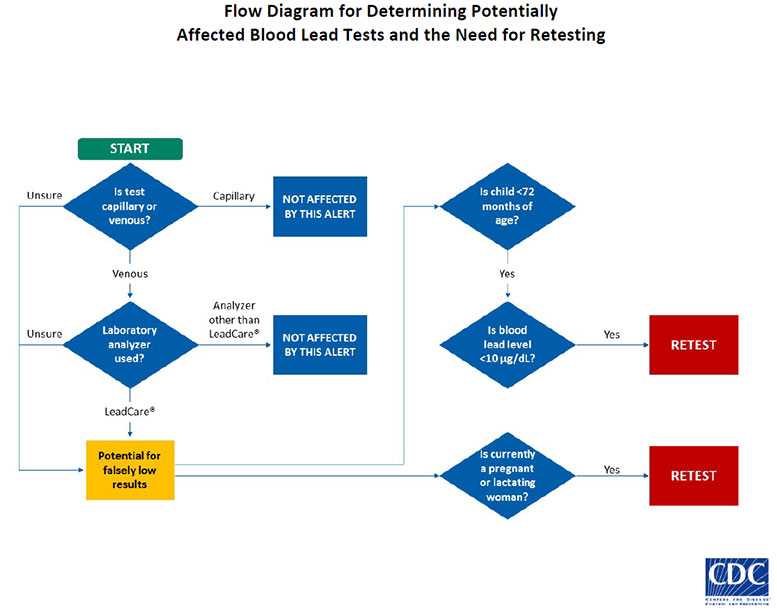Blood Lead Test Safety Alert

NEWS RELEASE
For Immediate Release: May 17, 2017
Media Inquiries: FDA: Tara Goodin, 240-402-3157, tara.goodin@fda.hhs.gov; CDC: Bernadette Burden, 404-639-3286, bburden@cdc.gov
Consumer Inquiries: FDA: 888-INFO-FDA; CDC: 1-800-CDC-INFO
FDA warns Americans about risk of inaccurate results from certain lead tests
CDC recommends retesting for certain children, pregnant women, and nursing mothers
Today the U.S. Food and Drug Administration and Centers for Disease Control and Prevention are warning Americans that certain lead tests manufactured by Magellan Diagnostics may provide inaccurate results for some children and adults in the United States. The CDC recommends that parents of children younger than six years (72 months) of age and currently pregnant women and nursing mothers at the time of this alert who have been tested for lead exposure consult a health care provider about whether they should be retested.
“The FDA is deeply concerned by this situation and is warning laboratories and health care professionals that they should not use any Magellan Diagnostics’ lead tests with blood drawn from a vein,” said Jeffrey Shuren, M.D., J.D., director of the FDA’s Center for Devices and Radiological Health. “The agency is aggressively investigating this complicated issue to determine the cause of the inaccurate results and working with the CDC and other public health partners to address the problem as quickly as possible.”
The FDA’s warning is based on currently available data that indicate Magellan lead tests, when performed on blood drawn from a vein, may provide results that are lower than the actual level of lead in the blood. This includes all four of Magellan Diagnostics’ lead testing systems: LeadCare, Lead Care II, LeadCare Plus, and LeadCare Ultra. At this time, all LeadCare systems can be used with blood from a finger or heel stick, including the LeadCare II system - a system found in many doctors’ offices and clinics. In addition, some laboratories offer other methods of lead testing, which are not believed to be affected at this time.
The CDC is recommending that health care providers retest children younger than six years (72 months) of age at the time of this alert (May 17, 2017) if their test was conducted using blood drawn from a vein using any Magellan Diagnostics’ LeadCare System tests and received a result of less than 10 micrograms per deciliter (µg/dL). The CDC also recommends that women who are currently pregnant or nursing and were tested in this manner while pregnant or nursing get retested. Other adults who are concerned about their risk or the risk to an older child should speak to their health care provider about whether they should be retested.
“We understand that parents of children and others affected by this problem will be concerned about what this means for their health,” said Dr. Patrick Breysse, PhD, CIH, director of CDC’s National Center for Environmental Health. “While most children likely received an accurate test result, it is important to identify those whose exposure was missed, or underestimated, so that they can receive proper care. For this reason, because every child’s health is important, the CDC recommends that those at greatest risk be retested.”
The FDA currently believes this issue with inaccurate results first appeared in 2014 and is issuing this warning now based on a lack of reliable data identifying the cause of the problem, the frequency and extent of inaccuracies, and concerns surrounding the effectiveness of mitigations taken by the company to date.
Lead exposure can affect nearly every system in the body, produces no obvious symptoms, and frequently goes unrecognized, potentially leading to serious health issues. Lead poisoning is particularly dangerous to infants and young children. While recommendations for lead screening differ from state to state, all states require children to be screened for lead exposure. Some adults are also at risk for lead exposure, including those who work around products or materials that contain lead.

For more information:
- Page last reviewed: May 17, 2017
- Page last updated: May 17, 2017
- Content source:
National Center for Environmental Health, Division of Emergency and Environmental Health Services


 ShareCompartir
ShareCompartir